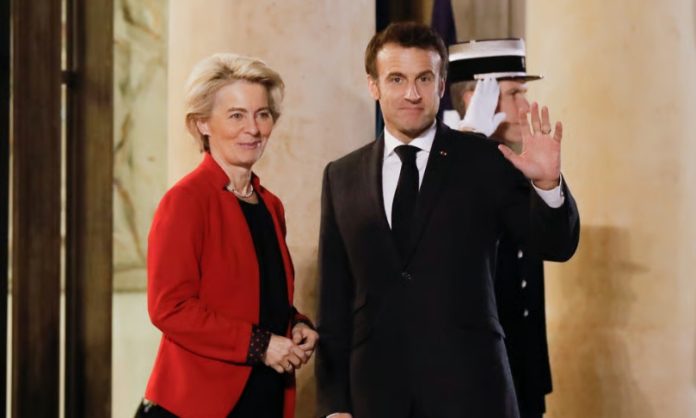A series of setbacks cast a shadow over the EU’s geopolitical ambitions and exposed the European Union’s internal contradictions, Bloomberg reports.
Last week, two senior leaders of the bloc travelled to the White House to express unity with President Joe Biden, but their trip did not yield the expected results: all attention was drawn to the quarrels between them.
The escalating conflict between Israel and Hamas prompted a series of contradictory statements from EU officials, a clear sign of the growing political European malaise.
According to several officials, the rift between Commission President Ursula von der Leyen and European Council President Charles Michel is stalling the work of the union, forcing the bloc to stand idly by when it needs to make a convincing stand on a growing list of issues, from conflicts in Israel and Ukraine to trade and China.
This was evident in the US, where both leaders held separate meetings with Joe Biden. Unity only succeeded in both meetings to no avail. Moreover, the squabbling continued, where this week the commission chairman is holding a major international summit to which, according to Charles Michel’s spokesman, von der Leyen did not invite her counterpart, according to Bloomberg.
As EU rules state, the member states can jointly steer the bloc’s foreign policy. Von der Leyen has decided to strengthen her influence in this area, at a time when China and the United States are increasingly asserting their economic interests.
Even before the start of her five-year term in 2019, she assured that her commission would be actively engaged in geopolitics. Now that this term is almost over and a possible second term looms on the horizon, many will confirm that she has delivered on her promise. However, her assertiveness often frustrates colleagues who feel caught off guard when important policy decisions are made.
The Commission President’s allies say her style means she can do more to give the EU geopolitical weight than any of her predecessors did. According to one European diplomat, she is acting as the face of the bloc alongside French President Emmanuel Macron.
Since the outbreak of the war in Ukraine in February 2022, she has been one of the bloc’s most decisive figures: von der Leyen pushed the bloc to adopt tough sanctions at a time when the leaders themselves – especially France and Germany – were hesitant to take drastic action, Bloomberg reports.
And her close relationship with Washington was frowned upon, though it brought results: she defended China’s policy of “derisking” without separating itself from others, which the US is now repeating. In Israel, however, her credentials have no force, according to ambassadors and officials.
When Hamas began deadly shelling on 7 October, von der Leyen, as usual, reacted immediately. She declared the EU’s full support for Israel and condemned the attack by Hamas, which the EU considers a terrorist organisation. But there was one problem – the EU had already developed a joint position under the leadership of the bloc’s chief diplomat, Josep Borrell.
As a result, von der Leyen quarrelled with her colleagues on protocol and substance: many member states privately accused her of failing to make adequate mention of the humanitarian situation in Gaza, which would have been given more attention in the Council’s position.
Several diplomats, on condition of anonymity, expressed disapproval of von der Leyen’s actions. Moreover, some officials had to clarify relations with Israel’s regional neighbours after her visit to Israeli Prime Minister Benjamin Netanyahu.
Following von der Leyen’s trip, an emergency meeting of the European Council was called and EU member states issued a statement clarifying their position to the Arab world and the South. According to a senior EU official, the summit was called to mitigate as much as possible the damage caused by the EU’s initial reaction after it provoked a backlash in Arab countries.
The lack of consensus on the Middle East issue reflects real differences in the positions of member states: Spain is one of the strongest voices for the Palestinians, while Germany has historical reasons to support Israel, and Chancellor Olaf Scholz rushed the visit, according to Bloomberg.
Von der Leyen fully supports the EU’s position as expressed in the 15 October Council statement, her spokesman said, while Michel’s spokesman said he had made a significant effort to work with many partners to help avoid regional escalation and strengthen the EU’s image and credibility abroad.
Von der Leyen’s Global Gateway summit on Wednesday and Thursday is an initiative that falls entirely under the Commission’s prerogatives and is managed by the Commission, so it is only natural that the Commission would chair and organise it.
Von der Leyen is still the frontrunner to run for a second term as commission president after next year’s European Parliament elections, but some diplomats told Bloomberg news agency they are beginning to doubt whether recent events will affect her chances.
The situation with the Middle East shows a change in the tone of criticism of the EU chief executive, as well as its focus. Whereas criticism used to come mainly from within the EU apparatus, it now insults some member states, claiming to speak for them.
